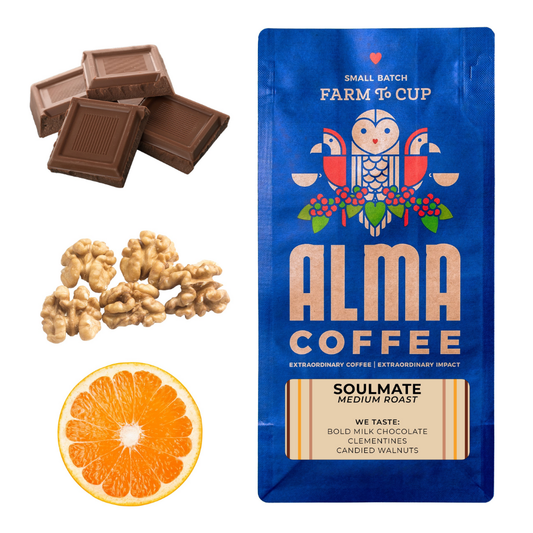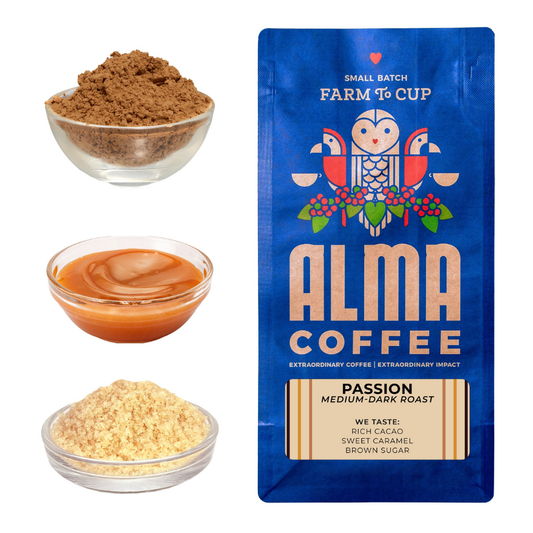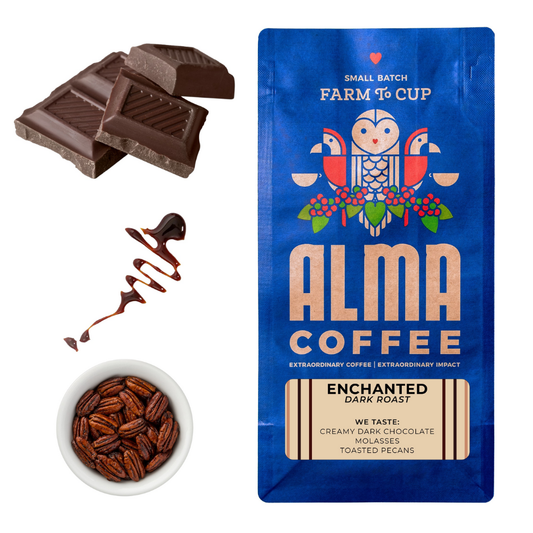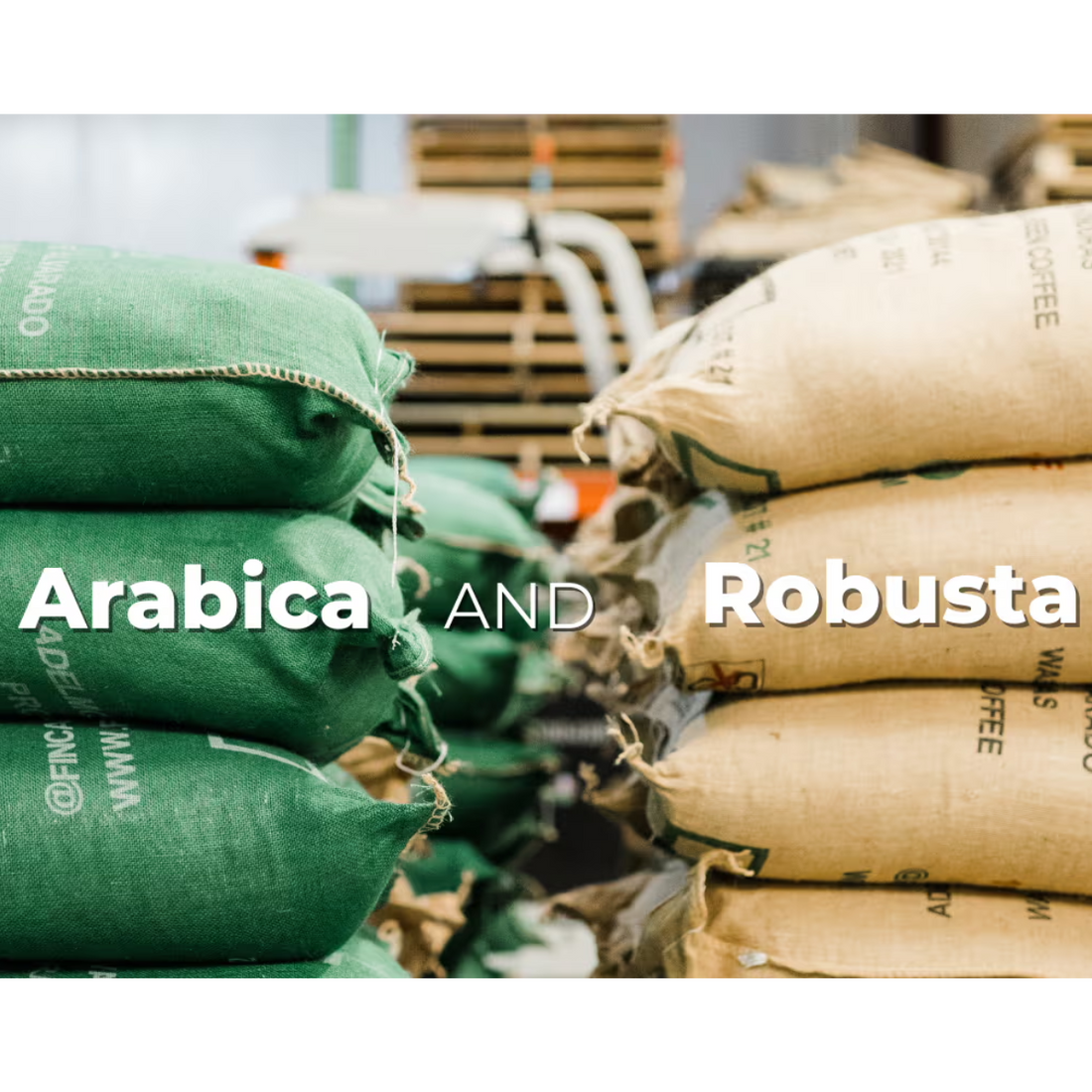
Arabica and Robusta
Share
by: Marisa Hart
Arabica and Robusta. You’ve probably heard them in your coffee drinking experience, but what’s the difference? There are actually over 100 different varieties of coffee beans, but only Arabica and Robusta are grown for consumption.
If you already drink Alma coffee, your favorite cup is 100% Arabica but knowing the difference will make you a more informed coffee drinker. In this week’s blog, we explore the differences, the science and geography of both Arabica and Robusta as well as where you can find them.

The Beans
At first glance, you might not notice a difference between the Arabic and Robusta beans. And while they do have some things in common, they have quite a few differences especially when it comes to taste. The beans share the same family but are different species. Coffea arabica or Arabica coffee makes up nearly 75% of the coffee market while its cousin Robusta, or Coffea canephora, makes up the minority share.
The most noticeable difference between the two is the taste. Coffee connoisseurs might notice the sweet and fruity notes in Arabica coffee while Robust beans have a nuttier taste. Robusta beans also have a sharper flavor and are much more bitter.
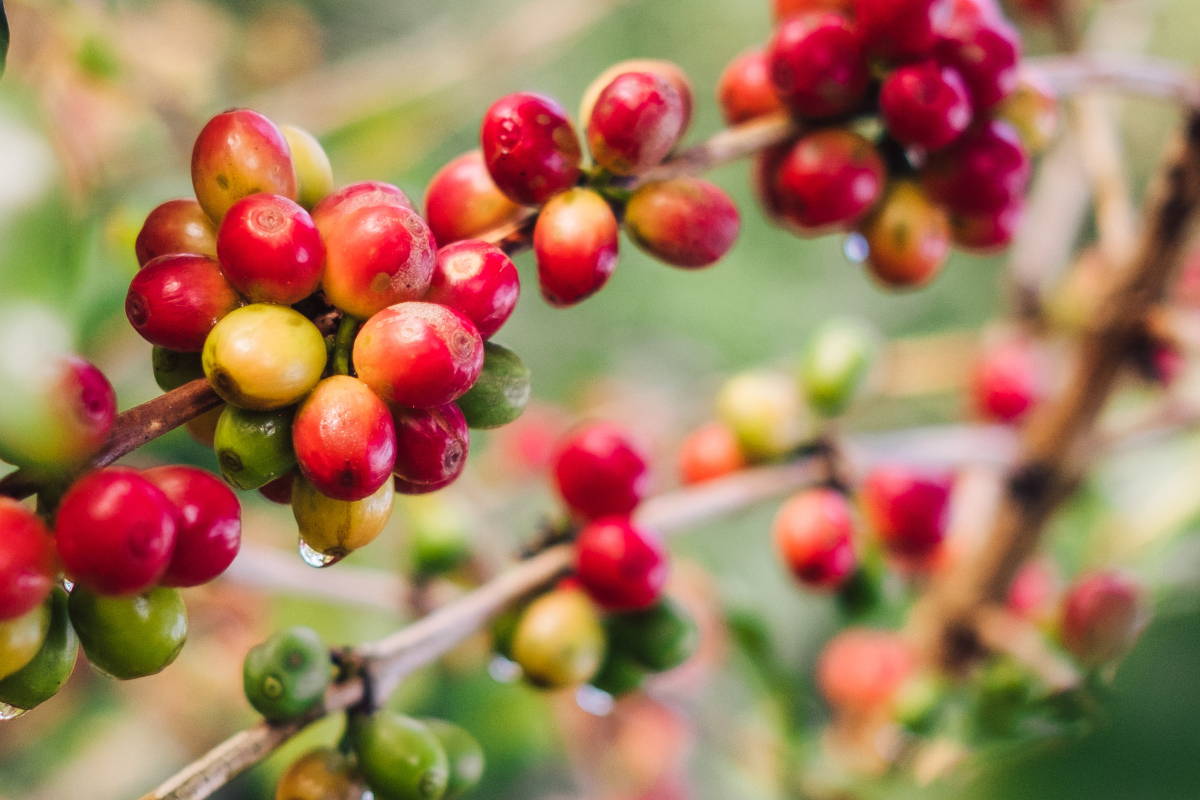
The beans also differ in caffeine content. An Arabica bean is 1.2-1.5% caffeine and a Robusta bean is 2.2-2.7% caffeine. Arabica beans also have more sugar and fat than Robusta. By a lot. Arabica has twice as much sugar and 60% more fat than Robusta.
All this greatly affects the taste of the finished product. The caffeine content is part of what makes Robusta so bitter, and the sugar and fat is what gives Arabica its sweetness. Just like in a steak, fat is most definitely flavor for the Arabica bean.
Robusta beans are also higher in a naturally occurring antioxidant called chlorogenic acid. Caffeine content and chlorogenic acid helps keep both bugs and diseases away. The downside to chlorogenic acid is that the oxidation process produces unwanted tastes in the finished cup.
The Geography
Though Arabica and Robusta beans looks very similar, the plants they come from thrive in different conditions. Robusta originated in eastern and central Africa where it is still grown today.
Robusta is cultivated exclusively in the eastern hemisphere in countries like Vietnam, Indonesia, and Uganda. Meanwhile, Arabica thrives in Central and South America. Brazil, the world’s leader in coffee production, grows both Arabica and Robusta.
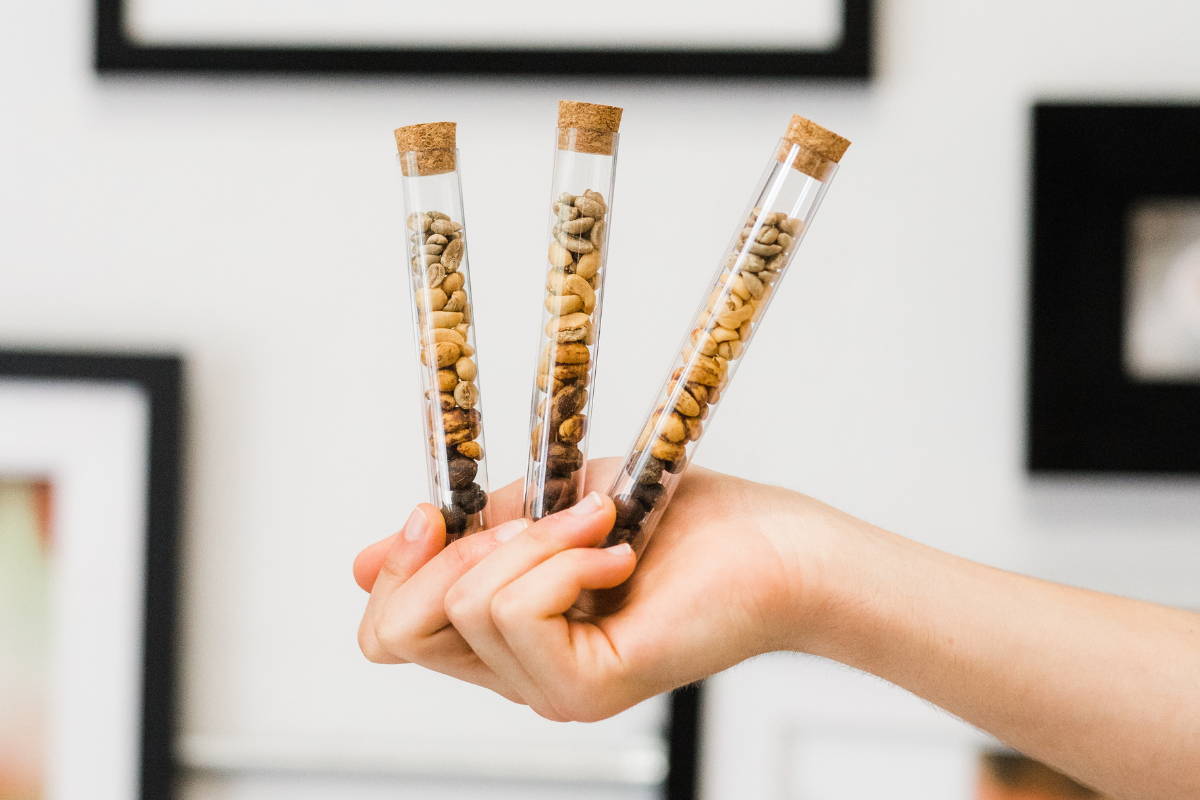
As we covered in our previous blog, coffee is a finicky crop, especially Arabica shrubs. Arabica plants need a cool sub-tropic climate and higher altitudes.
Robusta shrubs on the other hand are sturdier and more resilient to the elements. They can grow at lower altitudes and drier climates, mature faster, and produce more each harvest.
Robusta or Araibica
Our head roaster Matt Mullins assures us that, unless you’re a habitual instant coffee drinker, most people are not typically Robusta drinkers. It’s too bitter for the average coffee drinker and the quality is generally much lower than that of Arabica coffee.
Robusta, however, can also be found in some espresso blends because the crema—the foam on top—is greater in Robusta blends. And roasters looking for highly caffeinated brew might lean towards Robusta.
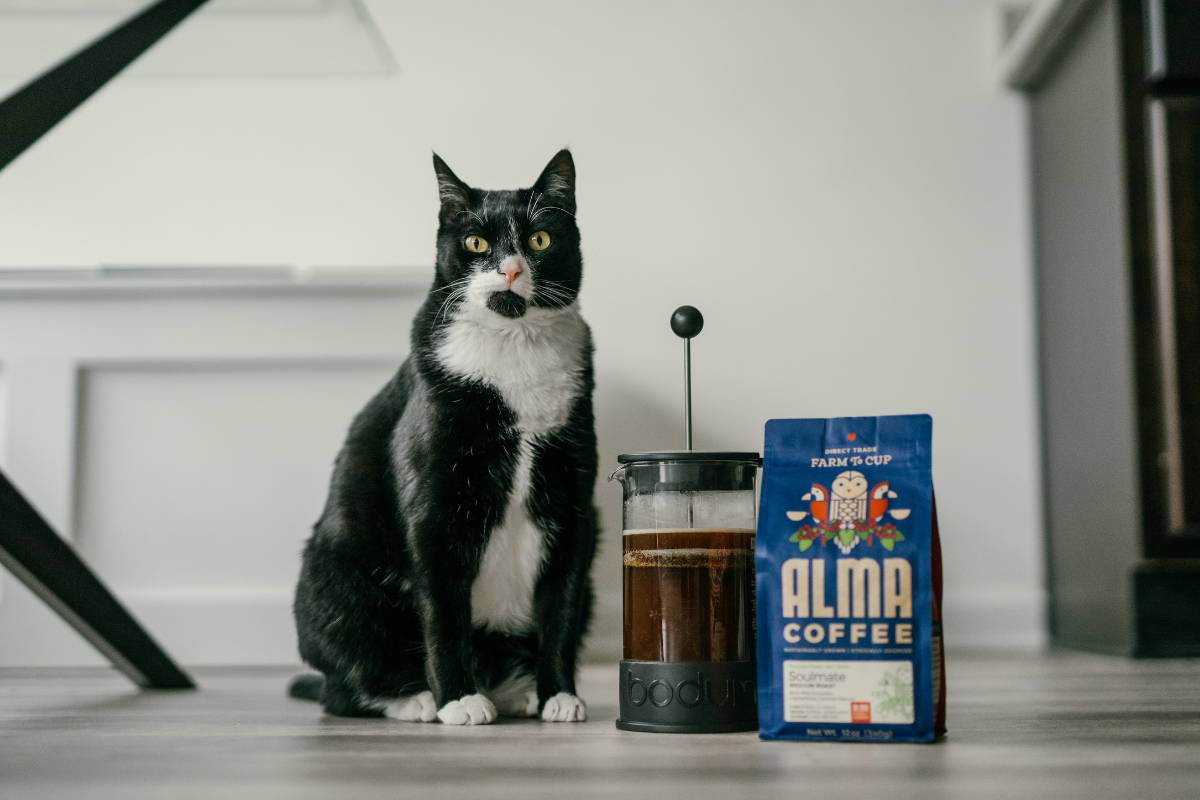
Each type of coffee has their place in the coffee chain. Robusta might have a reputation for being lower quality and more bitter, we can appreciate its versatility. Robusta can be found in blends to add a complexity of flavor. So, while we may be Arabica drinkers here at Alma, we can certainly respect the role Robusta plays in coffee.
So, Alma readers, do you prefer the sweeter, fruity notes of an Arabica roast or the sharper, nuttier tastes of a Robusta blend?



